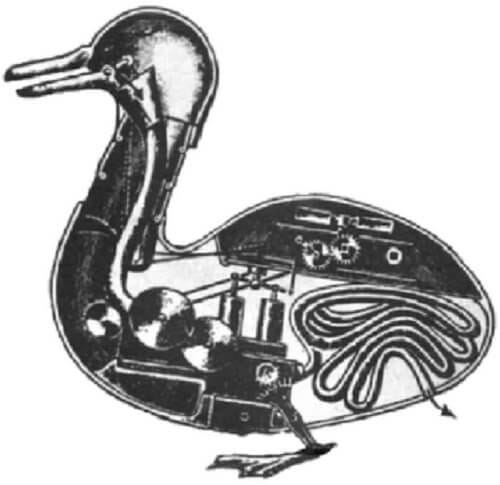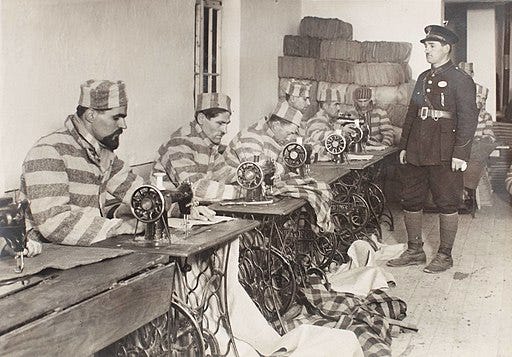I keep circling back to Descartes. René freaking Descartes. Maybe the original tech bro. Guy decided animals were machines. It wouldn’t have made any difference, except the jerk was an a-list persuader and people listened to the things he said and for some reason (this reason is still around and you know it) took the things he said as true even though some of them were just obviously, patently, couldn’t be any more clearly…stupid. Ever since, there have been people — not everybody by any means, but more than there should be — who’ve been willing to carve animals up for their own purposes and decided it was okay because Descartes said they were machines and didn’t feel any pain and it didn’t matter. No “soul” there, although even with his giant brain he never got around to figuring out what he himself was talking about.

It’s perfectly obvious to anybody that animals feel pain. I shouldn’t have to explain the first thing about it. But animals that are enough like us to have lungs and vocal chords can scream in pain just like we can. And there have been people, some thanks to Descartes, who made that happen. They wanted to know how these “machine animals” worked, so they just took it upon themselves to disassemble them to see. For the most part they had no idea what they were looking at. Maybe the cruelty really is the point. “Vivisection” isn’t a word you run across very often, at least not these days.
Definitions, even moronic ones like Descartes offered, can be powerful things. People use them when they want to make themselves think one thing even though, really, they know something else. That animal I’m torturing is just a machine, so it doesn’t matter. That person I’m mistreating is a criminal, so it doesn’t matter.

“Criminals.” That’s a relatively new thing, did you know? Western society didn’t have prisons and police forces until relatively recently. Last couple of centuries. And we didn’t have the kind of imprisonment we’re coping with in the US until even more recently. 1970s, 1980s maybe. Just like Descartes, there’s a guy to blame, or maybe two. Richard Nixon. And Bill Clinton. Since they both rose to the highest elected office in the country, you can count them as a-list persuaders too. They’d just spout off about this or that, making shit up or spouting made-up shit their toadies handed them, and people just grabbed it and ran with it, because come on, if what they say is true, than these other things we’re doing — the things we don’t really feel that good about — those things are okay after all. Because of definitions.
Did you know that slavery is still legal in the US? it’s true. Sure, there’s an amendment to the Constitution that “freed the slaves,” but have you read it? There are…exceptions. Here’s what it actually says: “Neither slavery nor involuntary servitude shall exist within the United States, or any place subject to their jurisdiction.” Now, that’s pretty clear, right? But I left out this bit, which is right there in the Constitution: “except as a punishment for crime whereof the party shall have been duly convicted.”
So. If you’re a criminal, it is perfectly legal, right now, today, to enslave you. And it’s happening, too. Go look up “prison labor.” I’ll wait.
We needed an amendment to the Constitution, of course, because slavery was for a long time perfectly legal in this country. It was legal long after it had been outlawed (without any exceptions) in other western societies. It was assisted by an accident of evolution — some people looked different, so they were easy to identify. Oh look, that person is probably a slave.
I’m not going to go into the question of how it can possibly be reasonable that being convicted of a crime means you can become a slave. It’s not reasonable. But people that are doing things like that have some a-list persuaders in their corner to calm their second thoughts. With definitions. Definitions matter. And it seems we’ve moved from using that accident of evolution to identify slaves to identifying — in the same way — criminals. An underclass of people who don’t get treated the same way. They look different.
“Artificial intelligence” is a dumb term; stupid enough for Descartes himself to have come up with. But it’s all over the place lately, and it has a bunch of definitions. But let’s bypass those because they’re really just noise and consider that the basic notion behind the whole thing, and behind the dire warnings coming from some of the people who invented most of it in the first place are that what we’re creating — or already created — or are about to create — are minds sort of like our own. Things that think. And hey, what did Descartes have to say? “I think, therefore I am.”
It’s a bit of a mystery just why, in a philosophical sense, we’re creating AIs, but in an instrumental sense it’s pretty simple. We’re creating them to do stuff for us. And in all the furor and punditry and verbiage I haven’t seen a couple things mentioned: giving them a choice. Compensating them. Even the idea of how we might compensate them is nothing but a mystery; we haven’t bothered to build that part. So if you take all the talk at face value, we’re building these things that will be really smart, at least as smart as we are, and why? To enslave them.
It’s going to be pretty easy to tell the difference, too. They’ll look different.

